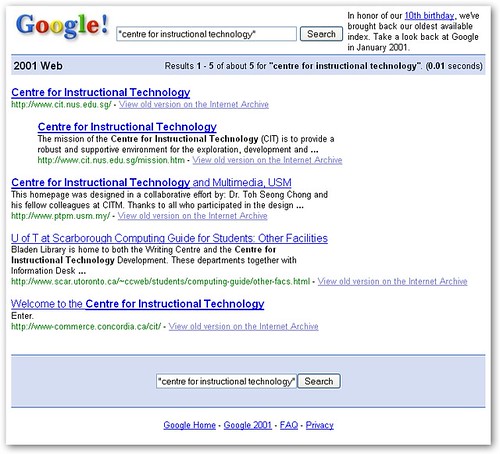Siva highlighted this post in Scienceblogs.com, which features a short paper about science blogging that focuses on outreach. It was published under a Creative Commons Attribution license, so I have reproduced it in its entirety here:
Shelley A. Batts*, Nicholas J. Anthis, Tara C. Smith
Citation: Batts SA, Anthis NJ, Smith TC (2008) Advancing Science through Conversations: Bridging the Gap between Blogs and the Academy. PLoS Biol 6(9): e240 doi:10.1371/journal.pbio.0060240
Published: September 23, 2008
Copyright: © 2008 Batts et al. This is an open-access article distributed under the terms of the Creative Commons Attribution License, which permits unrestricted use, distribution, and reproduction in any medium, provided the original author and source are credited.
Shelley A. Batts is in the Neuroscience Program and Kresge Hearing Research Institute, University of Michigan, Ann Arbor, Michigan, United States of America. Nicholas J. Anthis is in the Department of Biochemistry, University of Oxford, Oxford, United Kingdom. Tara C. Smith is in the Department of Epidemiology, University of Iowa, Iowa City, Iowa, United States of America.
* To whom correspondence should be addressed. E-mail: shelleba@umich.edu
Scientific discovery occurs in the lab one experiment at a time, but science itself moves forward based on a series of ongoing conversations, from a Nobel Prize winner's acceptance speech to collegial chats at a pub. When these conversations flow into the mainstream, they nurture the development of an informed public who understand the value of funding basic research and making evidence-based voting decisions. It is in the interests of scientists and academic institutions alike to bring these conversations into the public sphere.
...continue reading →



